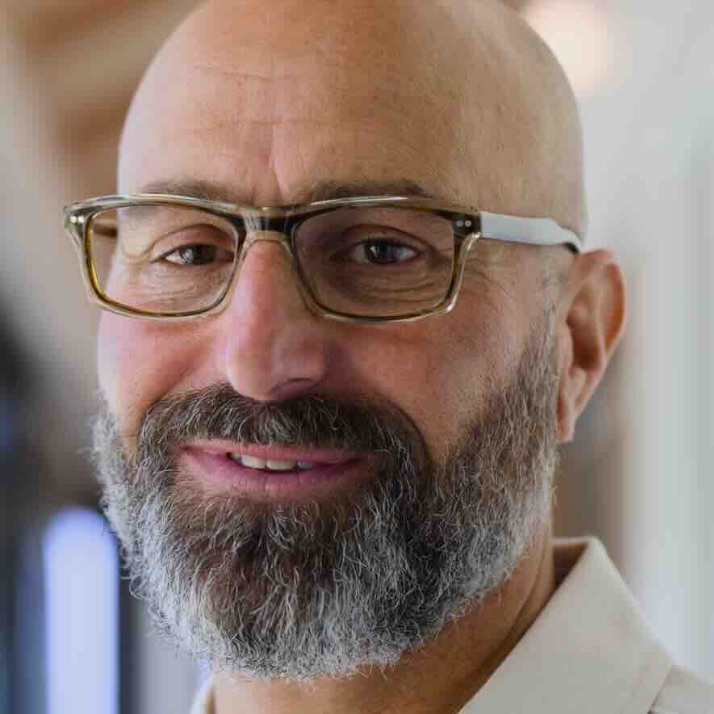Finding Support for Gambling Addiction in San Jose
Living with Gambling Addiction struggles can feel overwhelming, and you’re not alone. MiResource is a trusted place to find support, making it simple to connect with therapists in San Jose for care that fits your life—online or in person. You’re in the right place to take the next step toward help and healing.
An Overview of Gambling Addiction
Gambling Addiction involves risking money or valuables on games of chance and can become a compulsive behavior that affects finances, relationships, and mental health in San Jose. If betting feels hard to control, you’re not alone— Gambling Addiction is common and treatable. Therapy can help you understand triggers, rebuild control, and find healthier ways to cope, with local support options available in the San Jose area.
Defining Gambling Addiction
Gambling Addiction disorder is a pattern of betting or wagering that becomes hard to control, leading to problems at home, work, or school in San Jose and beyond. Hallmark signs include being preoccupied with Gambling Addiction, needing to bet more to feel the same excitement, chasing losses, hiding or lying about Gambling Addiction, and feeling irritable or restless when trying to cut back. Day-to-day, it can look like missed bills, borrowing money, trouble concentrating, strained relationships, missed shifts or classes, and sleep problems. Authoritative sources such as the American Psychiatric Association, the National Council on Problem Gambling, and SAMHSA describe these symptoms and impacts clearly. If this resonates, consider exploring the broader Gambling Addiction therapy resources on MiResource.
Benefits of Therapy for Gambling Addiction
Therapy helps people living with Gambling Addiction problems gain control over urges, rebuild routines, and restore confidence—real change that brings hope. Cognitive Behavioral Therapy (CBT) teaches practical skills to challenge Gambling Addiction thoughts, reduce cravings, and prevent relapse. Motivational Interviewing (MI) strengthens commitment to change, helping you set clear goals and follow through with healthier choices. Acceptance and Commitment Therapy (ACT) and mindfulness-based strategies build tolerance for urges and stress, so you can focus on your values and daily life. Family therapy improves communication and trust, supporting better boundaries and healthier relationships in San Jose.
The Therapy Journey – What to Expect
Starting therapy for Gambling Addiction in San Jose typically begins with a compassionate initial assessment to understand your history, triggers, and strengths. Together, you and your therapist will set realistic, personalized goals—such as reducing urges, rebuilding routines, and repairing finances and relationships—so progress feels clear and manageable. Ongoing sessions focus on collaborative, evidence-based care using approaches like Cognitive Behavioral Therapy, Motivational Interviewing, relapse-prevention planning, and mindfulness strategies tailored to your needs. You can expect practical tools for coping with cravings, improving decision-making, and creating supportive habits between sessions. Throughout, your therapist will check in regularly, adjust the plan as life changes, and celebrate small wins to keep you moving forward with confidence.
Tips for Choosing the Right Therapist in San Jose
Enter San Jose in the location field, then choose Gambling Addiction under condition to see relevant providers. Use the therapy approach filter (e.g., CBT, motivational interviewing, family therapy) to match your preferences. Select your insurance to view in-network options, and pick your preferred language to ensure clear communication. Set availability (soonest appointments, evenings, weekends, telehealth) to fit your schedule. Narrow further by San Jose neighborhoods like Downtown, Willow Glen, or Almaden Valley to cut travel time. Personal fit matters most—start exploring the MiResource directory now and reach out to a few matches to get the support you need.
Why a Local San Jose Therapist Can Make a Difference
San Jose’s diverse, tech-driven community shapes how gambling issues show up and how therapy works best. With nearby card rooms like Bay 101 and Casino M8trix, plus online betting access, local therapists understand real-world triggers—from after-work outings near Downtown and Santana Row to stress tied to start-up culture and high living costs. Many providers are culturally responsive and multilingual, reflecting communities in Japantown, Alum Rock, Berryessa, and East San Jose, where family expectations and stigma can affect help-seeking. A local therapist can tailor strategies to Silicon Valley work rhythms, community values, and the pressures of performance, privacy, and reputation that often accompany gambling problems.
In-person care is practical here: VTA Light Rail and buses, Caltrain and Diridon Station, and BART to Berryessa/North San José make clinics reachable from Willow Glen, Evergreen, and North San Jose, even with traffic on 101, 280, 880, and 85. Mild, sunny weather supports year-round appointments and accountability, while familiarity with landmarks like the SAP Center or SJSU helps integrate relapse-prevention plans around daily routines and social venues. For help now, the California Problem Gambling Helpline 1-800-GAMBLER offers 24/7 support; the California Council on Problem Gambling provides education and referrals . County resources include Santa Clara County Behavioral Health Services and local nonprofits such as AACI , Momentum for Health , Gardner Health Services , and Pathway Society . In emergencies, call or text 988 for Suicide & Crisis Lifeline, dial 911, or go to nearby emergency departments: Santa Clara Valley Medical Center, O’Connor Hospital, Regional Medical Center of San Jose, Good Samaritan Hospital, or Kaiser San Jose.
Gambling Addiction Therapy in San Jose: FAQ Guide
When should I consider seeking help for Gambling Addiction?
Consider reaching out if Gambling Addiction urges or behaviors persist or worsen, or if you’re struggling to cut back on your own. It’s a good time to seek help when Gambling Addiction starts interfering with daily life, school or work performance, finances, or relationships, or when you feel growing distress, shame, secrecy, or avoidance. Please seek immediate support if you’re experiencing thoughts of self-harm or any safety concerns. Early support can make recovery easier, and you can access both in-person and virtual Gambling Addiction therapy options in San Jose.
What if I don’t click with my therapist right away?
It’s normal not to click with a therapist right away—many people try more than one to find the right fit. A strong therapeutic alliance improves outcomes for Gambling Addiction, so it’s okay to switch if it’s not working. Use MiResource to compare San Jose therapists by approach, insurance, and availability and change providers anytime.
Does online therapy really work for Gambling Addiction?
Yes—online therapy can be effective for gambling problems, offering evidence-based approaches like CBT and relapse-prevention with the convenience, privacy, and flexible scheduling many people need. It can work well for motivation building, tracking urges, and skills practice between sessions, especially if you travel or have limited time in San Jose. In-person therapy may be preferred if you’re in crisis, have severe co‑occurring issues (e.g., substance use, suicidality), need higher structure or accountability, or want access to local resources like group therapy, Gamblers Anonymous meetings, or coordinated care in San Jose. Some people also choose in‑person if they lack a private space at home or benefit from face‑to‑face connection.
How do I prepare for my first session?
1) Clarify your goals: jot down what you want from therapy, your gambling addiction patterns, triggers, financial impact, and any past attempts to cut back.
2) Gather essentials: photo ID, insurance/payment info, a current medication list, referral (if any), and notes or statements that help illustrate spending patterns—only what you’re comfortable sharing.
3) Plan logistics: confirm the address, parking or transit, travel time, and whether you’d prefer in-person or telehealth for Gambling Addiction therapy in San Jose.
4) Prepare your story: note a brief timeline (when it started, biggest wins/losses, high‑risk situations, cravings/urges, consequences at work, school, or home).
5) Set expectations: the first visit often includes intake forms, history, confidentiality review, and collaborative goal‑setting; you may discuss coping strategies, safety planning, and referrals (e.g., GA, financial counseling).
6) Plan support and self‑care: consider a support person for drop‑off/pick‑up, schedule downtime after, and have coping tools ready (urges plan, breathing app, distractions).
What to bring
- ID, insurance/payment method
- A list of medications and health conditions
- Any relevant financial notes (budgets, debt agreements) you’re comfortable sharing
- A written list of goals, triggers, questions, and recent gambling episodes
- Water, notebook, and a calming item (if helpful)
What to expect
- A welcoming, nonjudgmental conversation focused on your needs
- Questions about Gambling Addiction history, mental health, substance use, and supports
- Discussion of treatment options (e.g., CBT, motivational interviewing), frequency, and homework between sessions
- Immediate coping strategies for urges and a plan for high‑risk moments
- Next steps, referrals, and how progress will be tracked
Questions to ask
- What experience do you have treating Gambling Addiction disorder, and what approaches do you use?
- How will we handle urges between sessions and develop an emergency plan?
- Can we coordinate with GA, loved ones, or financial counselors if I consent?
- Do you offer help with budgeting or link me to financial resources/self‑exclusion programs?
- How often will we meet, for how long, and what does success look like?
- What are the costs, insurance coverage, telehealth options, and confidentiality limits?
Can therapy truly help with Gambling Addiction?
Yes—research shows therapy, especially cognitive behavioral therapy and motivational interviewing, significantly reduces Gambling Addiction urges and harmful behaviors. In San Jose, working with a trained therapist can help you understand triggers, build healthier coping skills, repair relationships, and create a relapse-prevention plan. Many people also benefit from integrating family support and groups like Gamblers Anonymous alongside therapy. Consistency matters: attending sessions regularly, practicing skills between visits, and committing to the process greatly improves outcomes.













